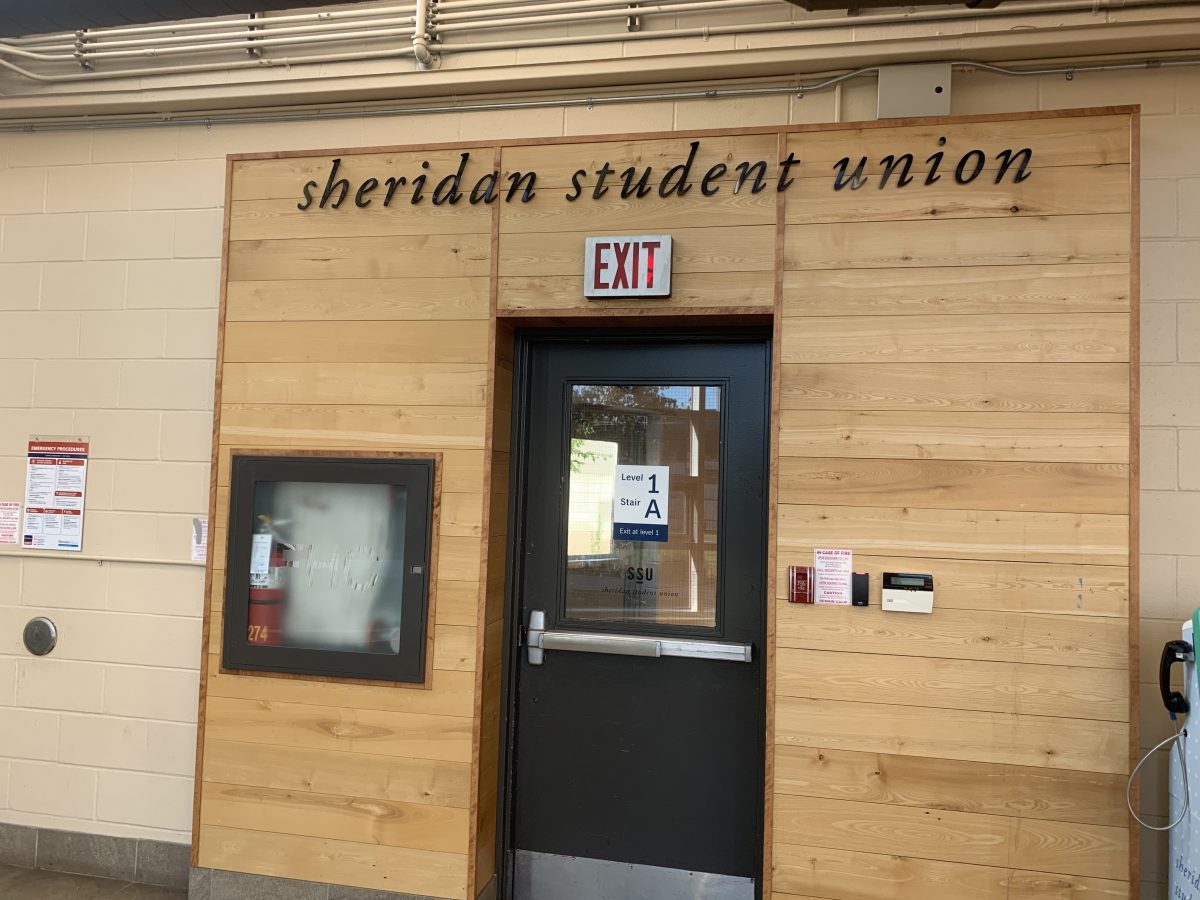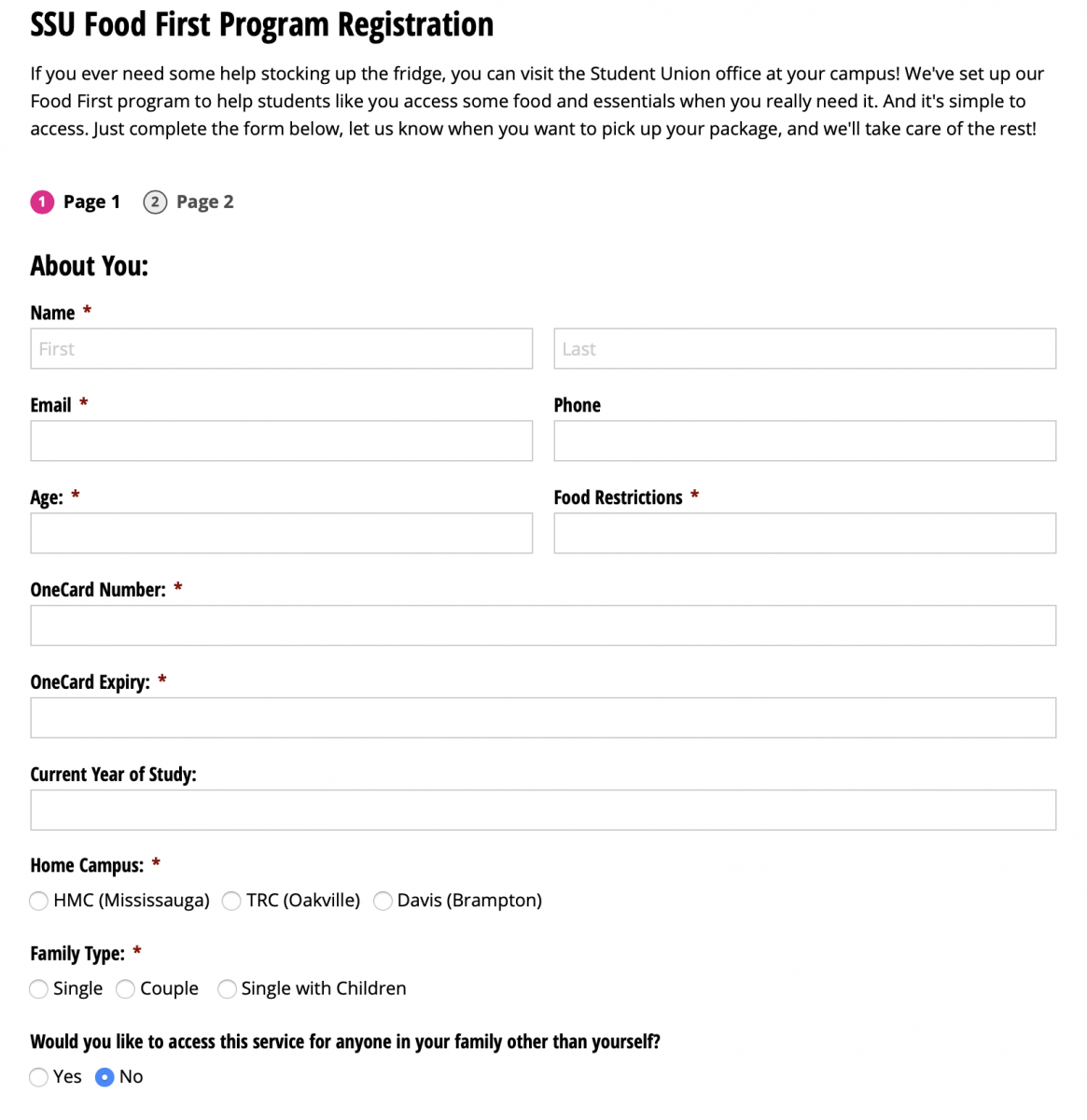The Sheridan Student Union doesn’t want you to go hungry.

That’s why the SSU offers the Food First initiative, created over seven years ago as an emergency food resource for students. SSU President Ben Leblanc says that Food First was created to have an accessible food bank on campus so that student’s wouldn’t have to go downtown to their local food bank.
In fact, the Food First initiative is easier to access than a regular local food bank.
“One thing that is different between us and other food banks is that we don’t ask for proof of income. A lot of food banks may ask if there’s a need. We don’t require that,” Leblanc said.
Ordering a Food First package is easy. Students need to go online to the Food First website and fill out the online form. They can pick up their package the next day and present their student card between the SSU office hours of 9 a.m – 5 p.m, Monday – Friday at each Sheridan Campus.

One thing Leblanc says he hopes students can take away from Food First is that the SSU is non-judgemental.
“You never need to be afraid of accessing the resource. There’s no stigma attached to accessing our food bank,” Leblanc says.
If you’re looking to donate to Food First, each campus has a donation bin. The Trafalgar donation bin can be found on the first floor of the Union Square building. HMC’s building is on the third floor of the A-wing, and the Davis donation bin is on the first floor of the SC building.
If you still feel uncomfortable using the SSU’s Food First initiative, feel free to visit your local food bank.
Food Banks Canada says that an average of 1.1 million Canadians visit food banks every year. Its media coordinator, Sylvie Pelletier, says that there are multiple types of food banks out there.
“Not one food bank is the same. The food banking system really was born locally so they all operate differently depending on the resources that they have available whether it’s volunteer resources or even the funding that they have through their fundraising.”
Pelletier says that some food banks might offer what is called a “shopping model” that acts like a grocery store. Clients are given tokens and depending on the colour of the tokens, that determines what items clients can take and how many items they can take.
There are also the type of food banks that just hand you a bag with food. Other food banks might have clients fill out a questionnaire and then refer those clients to other services that they might need.
The local food banks in Brampton are located St. Andrews Presbytarian church, Foodbank Salvation Army and St. Paul’s United Church.
The local food banks in Mississauga are located at Eden Food For Change, The Compass and The Mississauga Food Bank.
Local food banks in Oakville are found at the Salvation Army, Oakville Fareshare Food Bank and St. Luke’s Anglican Church.

